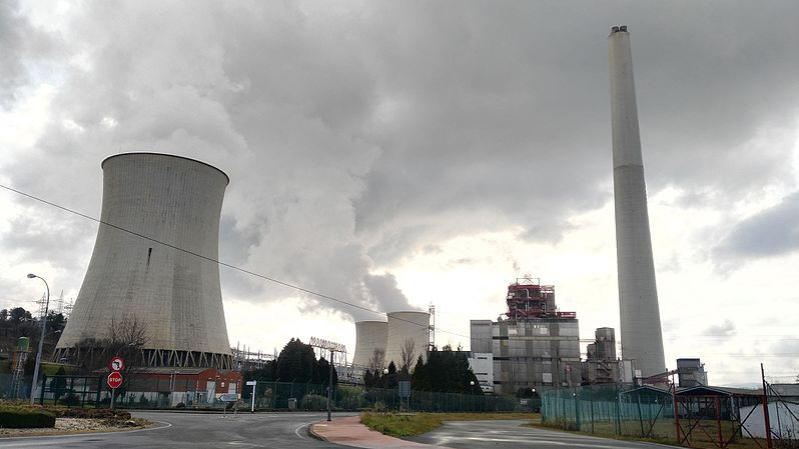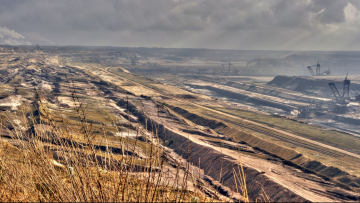Emissions trap: Financial institutions still feeding the gas industry
Claire Maraval, Utilities & European transition campaigner, +33(0)685458027
Brigitte Alarcon, campaigner at Beyond Fossil Fuels, +33 641 288 759
Helen Burley, International press relations, +447703731923

Claire Maraval, Utilities & European transition campaigner, +33(0)685458027
Brigitte Alarcon, campaigner at Beyond Fossil Fuels, +33 641 288 759
Helen Burley, International press relations, +447703731923
While Europe needs to decarbonize electricity production by 2035 to limit warming to 1.5°C, a new report finds that banks and investors have provided billions of dollars in support to the gas power industry since 2019 (1). The report’s authors, including Reclaim Finance and Beyond Fossil Fuels, call on financial institutions to restrict support for gas power in Europe to avoid locking-in carbon emissions on a huge scale, and increasing the level of stranded assets by 2035.
The analysis, which focuses on power utilities and companies developing gas-fired power plants in Europe, found that banks have provided more than US$ 314 billion to the gas sector from 2019 to 2022, with a further US$ 200 billion in support from investors as of November 2022.
While gas is often portrayed by the industry as a cleaner source of power than coal, and has controversially been allowed in the EU taxonomy, it remains a significant source of carbon dioxide, with gas-fired power stations the largest source of carbon dioxide emissions from power generation in Europe (2). Above all, new gas plants lock-in both CO2 emissions from fossil gas combustion and methane emissions along the gas supply chain - which are 86 times more damaging than CO2 over a 20 year period.
Claire Maraval, Utilities and European Transition campaigner at Reclaim Finance and lead author of the report, said: “Switching from gas-fired power stations to renewables is essential if European countries are to decarbonize their power sectors by 2035 in order to limit global warming to 1.5°C. But money is still pouring into the European gas power sector, including into the development of new power plants. This report sends a clear warning to financial institutions that it is time for a rethink. Net zero means gas phase out and absolutely no new gas-fired power stations, and they must update their policies to reflect this.”
The International Energy Agency’s (IEA) net zero scenario projects a rapid decarbonization of electricity and the need to invest 9x more in renewable and clean energies and its key enablers (i.e. storage, transport, energy efficiency measures) than in oil and gas to limit global warming to 1.5°C (3).
But the report finds that almost all of the utility companies operating in Europe have yet to publish any plans to phase out their dependence on gas, and some 80 companies are planning to develop new gas facilities, with more than 63 GW of gas plants planned, of which 18% are already in construction. Given that such facilities have an average lifespan of 20 years, there is a serious risk they could become stranded assets.
Despite these risks, only three of the 25 most involved banks apply some form of restrictions to the sector (HSBC, La Caixa and Société Générale) - and even then these are too weak to stop expansion and support a gas power phase out. The most exposed banks include BNP Paribas, Mitsubishi UFJ Financial, Citigroup and BBVA.
The most heavily-backed companies by the banks include Enel (US$ 61 billion), Vitol SA (US$ 42 billion), Mitsubishi Corp (US$ 25 billion), RWE AG (US$ 25 billion) and Engie (US$ 21 billion).
Major investors include BlackRock, Government Pension Fund Global and Vanguard, who have similarly failed to put policies in place to phase out their support for gas with only La Caixa including some limited restrictions (4). Investments include Iberdrola (US$ 32 billion), Enel (US$ 29 billion) and Naturgy Energy Group SA (US$ 20 billion).
Banks and investors pumping billions of euros into fossil gas power generation in Europe are burdening households and businesses with surging energy prices, weakening our energy security, and causing climate breakdown. Every euro invested in fossil gas should be going into renewables instead to secure the energy transition that we need to protect our health and the rights of our children to a safe and prosperous future," said Brigitte Alarcon, campaigner at Beyond Fossil Fuels.
Reclaim Finance and Beyond Fossil Fuels are urging financial institutions to end all support to new gas plants for gas power producers that don't have a plan to exit gas by 2035 and to use their influence to push gas power companies to adopt robust transition strategies that lead to the phase out of all of their gas assets in favour of renewables by 2035 at the latest (5).
Notes
(1) Reclaim Finance and Beyond Fossil Fuels, Gaslighting: Financing fossil gas power is leading Europe's energy transition astray
(2) Ember, Gas power plants now Europe’s top power sector emitter, April 2021
(3) Reclaim Finance, WEO 2022 – From the fossil fuel age to the clean energy era, November 2022
(4) See the Oil & Gas Policy Tracker
(5) Reclaim Finance, Towards 100% renewable electricity, February 2023
Reposted from the original press release on Reclaim Finance's website here.


